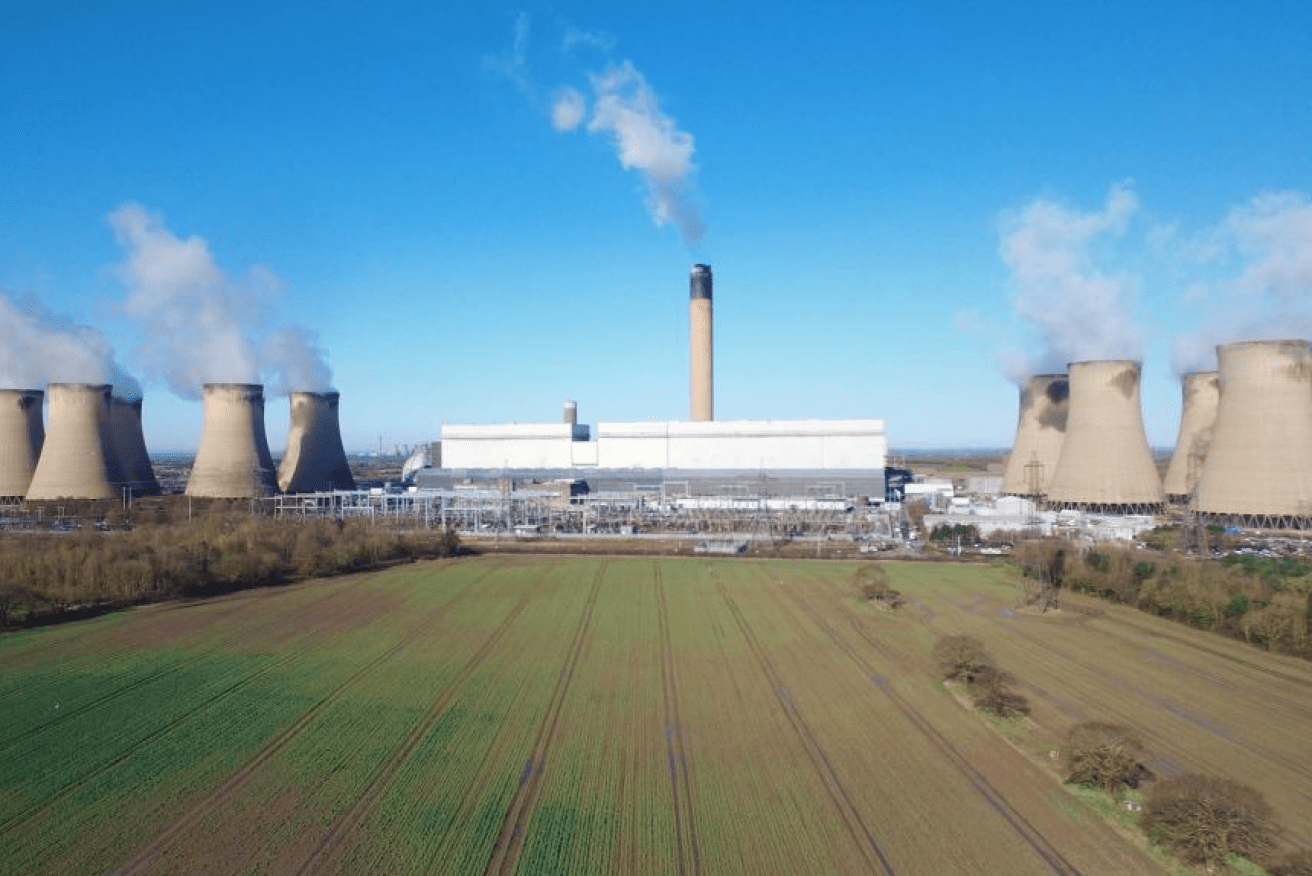Britain’s Conservatives don’t share Tony Abbott’s passion for burning coal

The Drax power station broke the coal habit and now burns enviro-friendly renewable wood waste. Photo: ABC/Tim Stevens
As Tony Abbott and other prominent Coalition MPs make the case that Australia should be building new coal-fired power stations, Conservatives in Britain are pushing a very different agenda.
The Tory Government wants to end the use of unabated coal in the UK within seven years, and the policy is being driven by Claire Perry — the cabinet minister responsible for energy policy, who believes environmentalism is not a philosophy exclusively owned by the green-left.

Britain’s Energy minister Claire Perry stresses the “conserve” in “conservative”. ABC News: Niall Lenihan
“Conservatism to me is about protecting what you inherit and improving it,” Ms Perry told the ABC.
“So whether it’s making sure the economy is robust for the next generation or whether it’s about stewarding this beautiful environment that we live in, that for me is the essence of my conservatism.”
Conservatives have been at the forefront of action on climate change in Britain for decades.
Around 30 years ago, Margaret Thatcher was one of the first leaders to warn of the dangers of global warming. In more recent years, David Cameron’s government introduced a series of measures that have had a significant impact on reducing the use of fossil fuels.
In 2012, 40 per cent of Britain’s electricity was generated by coal-fired power stations. Last year that figure plummeted to 7 per cent.
Businesses are buying in
Drax Power in Yorkshire, Britain’s largest electricity generator, has been one of the companies leading the way in decarbonising the economy.
Built in the 1970s to burn coal dug up from local pits, Drax provides around 8 per cent of the UK’s electricity needs.
Three of the plant’s six generators have been converted to biomass, creating renewable energy by using the offcuts of harvested timber. The company hopes its plant at Selby will stop burning coal within five years.
Drax Power’s CEO Andy Koss said the decision to transform the power station was driven by government policy.
“It’s been carrot and stick,” he said.
“The Conservative government in 2010 introduced the carbon price floor, a tax that is paid for emitting carbon. We saw that coming in and we knew that was going to change the economics of coal considerably.
“The carrot has been the support for renewable technologies such as biomass.”
The former banker said the decision to embrace renewables had reduced the plant’s carbon footprint by over 80 per cent. He said the local economy had benefited from the transition.
“We are profitable,” he said. “The business last year produced 65 per cent of its electricity from biomass and we haven’t lost any jobs. In fact, we have created jobs through the supply chain.”
Ms Perry argued Britain’s diversion away from coal had opened up economic opportunities.
“In the UK, the low-carbon economy is growing at about 11 per cent a year and employs over 400,000 people now,” she said.
“It’s bigger than the aerospace manufacturing economy. It’s a real growth powerhouse for the UK and that’s happening right across the world.”
But not everyone sees it that way.
‘The UK is built on coal’
Chris Kitchen, the General Secretary of the National Union of Mineworkers, is appalled by the Government’s policy.
He said they should have invested in clean coal technology instead of renewables.

Union boss Chris Kitchen claims renewables subsidies distort the market and make coal uneconomic. Photo: ABC/Tim Stephens
“The UK is built on coal,” he said.
“Britain became Great Britain because of coal. We fought two world wars on the reliance of coal.
“It’s not an old dirty fossil fuel. It can be a fuel of the future if it was given the same investment as what’s been given to wind and solar and other renewables.”
Inside his union’s hall in Barnsley, the walls draped with banners from previous campaigns, the former mineworker said he feared for the future of his country’s energy supplies.
“I think it’s an ambitious plan that is just idiotic,” he said.
“When the cold weather comes, the wind stops blowing, the sun stops shining and they turn the coal stations on. Luckily this year we’ve had the coal stations to turn on.”
Richard Black from the Energy and Climate Intelligence Unit said the push for renewables had not led to any power shortages in Britain.
“We haven’t had any power cuts in the UK that have been related to a shortage of generation for well over a decade,” he said.
“All the power cuts basically are things like workmen cutting through a cable or wind blowing down a power line or something like that.”
He said power bills had not gone up as a result of the reduction in coal use.
“Bills have actually come down because of energy efficiency measures and have reduced energy demand, so overall we’re better off than we were,” he said.
Spreading the anti-coal message
Of course, Britain has two advantages in weaning itself off fossil fuels.
It no longer has an abundance of cheap coal on its doorstep after Conservative governments led by Margaret Thatcher and John Major announced pit closures in the 1980s and 90s.
There are virtually no active coal mines left in the UK. And it also has 15 nuclear plants which contribute roughly one quarter of the nation’s power needs and stabilise base-load power production.
As the country has embraced the transition into a low-carbon economy, it has decided to spread its anti-coal message to the rest of the world.
Ms Perry and Canada’s Minister for Climate Change Catherine McKenna have formed the Powering Past Coal Alliance and they are hoping that all OECD nations will phase out coal use by 2030.
Over 50 nations, states, cities and businesses have signed up to the agreement.
Britain’s Minister for Energy and Clean Growth will announce new signatories when she speaks at the Bloomberg New Energy Summit in New York next week.
She said she hoped Australia would soon join other nations such as New Zealand, France and Italy and sign the agreement.
“Australia has different choices to make, and it would be wrong of us to sit here in Britain and prescribe what Australia’s energy policy should be, what we’re trying to do is to help and to show that there is a way through this,” she said.
-ABC








